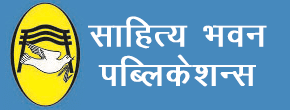The book has been prepared strictly according to the new syllabus for B.Com. Semester I effective from academic session 2023-2024 for Vinoba Bhave University, Hazaribagh.
The publishers are grateful to Dr. Manoj Bansal, who has prepared the chapters relating to Computerised Accounting System as per new syllabus.
Some of the special features of this book are :
- A new chapter on Journal Entries of G.S.T. has been included in the book so that students may study the accounting of G.S.T.
- In each chapter of the book final accounts have been closed on 31st March only.
- The book covers the syllabus of both major compulsory papers Financial Accounting and Computerised Accounting.
- The unique feature of the book is that each and every topic of both the papers have been included in the book.
- In each chapter Descriptive Answer Type Questions, Short Answer Type Questions and large number of M.C.Q. with Answer have been given.
After going through the theory, illustrations and questions of this book, one can easily solve questions of university examinations. Acquisition of thorough knowledge of Accountancy : A candidate can solve Accountancy questions only when he has confidence and such confidence can be acquired only on the basis of real knowledge of this subject. For this purpose suitable illustrations have been given to explain various theories, principles, rules and procedures. Selection of practical illustrations and questions in each chapter and placing them in a systematic order is so reasonable, logical, orderly and scientific that even an ordinary student can acquire real, complete, thorough, latest and up- to-date knowledge of this subject in a very short period of time and without any exertion on his part.
Financial Accounting Including Computerised Accounting Syllabus For B.Com. Ist Semester of Vinoba Bhave University
Unit 1: (a) Theoretical Framework
1.1 Accounting as an information system, the users of financial accounting information and their needs. Qualitative characteristics of accounting information. Functions, advantages and limitations of accounting. Branches of accounting. Bases of accounting: cash basis and accrual basis.
1.2 Financial accounting principles : Meaning and need; Generally Accepted Accounting Principles: entity, money measurement, going concern, cost, revenue recognition, realization, accruals, periodicity, consistency, prudence (conservatism), materiality and full disclosure.
1.3 Accounting standards: Concept, benefits and Process of formulation of Accounting Standards including Ind AS (IFRS converged standards) and IFRSs; convergence Vs. adoption; Application of accounting standards (AS and Ind AS) on various entities in India. International Financial Accounting Standards (IFRS)– meaning, need and scope; Process of issuing IFRS. (b) Accounting Process
1.4 From recording of a business transaction to preparation of trial balance including adjustments. Application of Generally Accepted Accounting Principles in recording financial transactions and preparing financial statements.
Unit 2: Computerized Accounting Systems
2.1 Computerized Accounting Systems: Computerized Accounts by using any popular accounting software
Creating a Company; Configure and Features settings;
2.2 Creating Accounting Ledgers and Groups; Creating Stock Items and Groups; Vouchers Entry;
2.3 Generating Reports-Cash Book, Ledger Accounts, Trial Balance, Profit and Loss Account, Balance Sheet;
2.4 Cash Flow Statement
2.5 Selecting and shutting a Company; Backup, and Restore data of a Company.
Unit 3 : Business Income, Accounting for Depreciation and Inventory Valuation
3.1 Business income: Concept of Revenue and Business Income, Measurement of business income; relevance of accounting period, continuity doctrine and matching concept in the measurement of business income; Objectives of measurement of Business income.
3.2 Revenue recognition: Recognition of expenses and income. Recognition of expenses and income with a reference to AS 9 and Ind AS 18.
3.3 The nature of Depreciation. Accounting concept of depreciation. Factors in the measurement of depreciation. Methods of computing depreciation: straight line method and diminishing balance method; Disposal of depreciable assets; change in method of Depreciation and its impact of on measurement of business income.
3.4 Inventories: Meaning. Significance of inventory valuation. Inventory Record Systems: periodic and perpetual. Methods of computing depreciation: FIFO, LIFO and Weighted Average. Application of Accounting Standard in valuation of Inventory. Impact of inventory valuation on measurement of business income.
Unit 4: Financial statements of Sole Proprietorship and Partnership Firms
4.1 Capital and revenue expenditures and receipts: general introduction only.
4.2 Praeparation of financial statements of non-corporate business entities-Sole Proprietorship and Partnership firms (both manual and using appropriate software).
Unit 5: Accounting for Branch:
1.1 Concept of Dependent branches; Branch Accounting – debtors system, stock and debtors’ system, branch final account system and wholesale basis system.
1.2 Independent branches: concept, accounting treatment with necessary adjustment entries; Incorporation of Branch Trial Balance in Head Office Books for home branches.
Financial Accounting Including Computerised Accounts Contents :
Financial Accounts
- Shri Kalyan Subramani Aiyar (1859-1940) (Father Of The Accountancy Profession In India)
- Nature And Scope Of Accounting
- Generally Accepted Accounting Principles : Concepts And Conventions
- Indian And International Accounting Standards
- Concept Of Double Entry System
- Preparation Of Journal
- Journal Entries Of Gst
- Sub-Division Of Journal : Cash Book
- Ledger (Including Rules Of Posting)
- Trial Balance
- Final Accounts (Financial Statements Of Non-Corporate Entities)
- Capital And Revenue
- Measurement Of Business Income
- Revenue Recognition : As-9
- Concept And Accounting Of Depreciation
- Valuation Of Inventories
- Branch Accounts
- Accounting Of Not-For-Profit Organisations (Receipts & Payment Account—Income And Expenditure Account)
Computerized Accounting
- Computerised Accounting System
- Popular Accounting Software Tally ERP 9
- Creating Group, Ledger And Vouchers Entry
- Creating Stock Groups And Stock Items And Accounting Vouchers
- Generating Reports






![Financial Accounting [for Guru Ghasidas University, Bilaspur]](https://i0.wp.com/sahityabhawanpublications.com/wp-content/uploads/2017/10/2759-Financial-Accounting-For-BCom-Hons-Ist-Year-BNMU-Magadh-University-Munger-University-Patliputra-University-Purnea-University-Tilka-Manjhi-Bhagalpur-University-1.jpg?resize=247%2C300&ssl=1)







Reviews
There are no reviews yet.